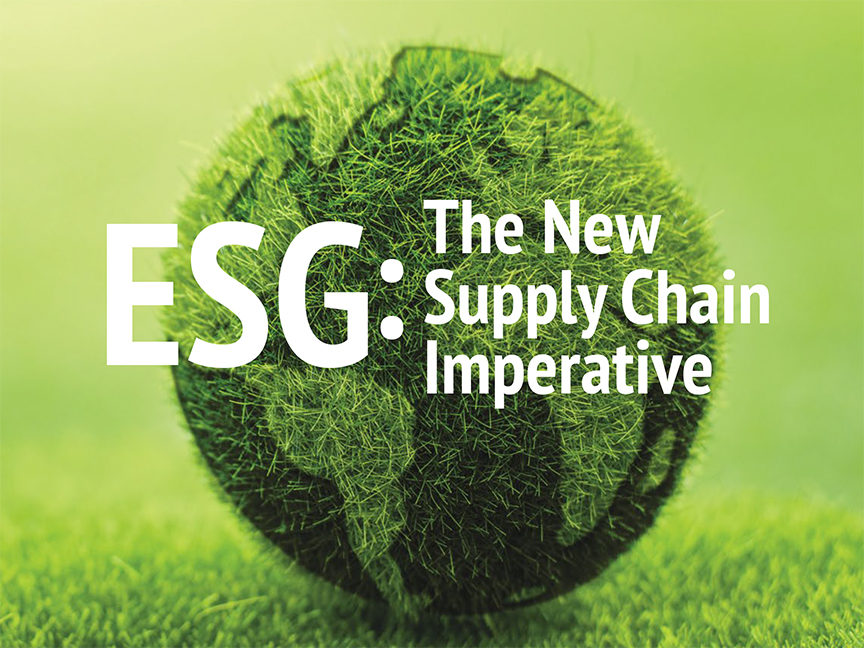
Visit Our Sponsors |
|
|
|
|
|
|
|
|
|
|
|
|
|
|
|
|
|
|
|
|
|
|
|
|
|
|
|
|
|
|
|
|
|
|
|
|
|
|

E.S.G.: Three letters that have enormous implications for global businesses and supply chains, now and in the coming years.
They stand for Environmental, Social and Governance, and each of those words evokes an extensive list of responsibilities, activities and business processes that reach deep into every conceivable part of the organization.
There’s nothing new, of course, about environmental awareness, concern for workers’ welfare or the need to govern a business along strict ethical and compliant guidelines. What’s different today is that companies no longer have a choice but to act in that manner: they need to go beyond uncoordinated efforts and (in some cases) virtue signaling to comply with the growing number of laws and regulations being put into place around the world. Governments and, increasingly, consumers, wouldn’t have it any other way.
Corporate sleepwalkers were awakened earlier this year by a sonic boom emanating from the European Union. The EU issued a draft directive requiring that companies exercise “due diligence” in adhering to international rules on child labor, workers’ rights and environmental protection. The action potentially affects some 4,000 international companies doing business within the 27-nation bloc, with revenues of more than €170 million and at least 500 employees. It also impacts businesses in such “high-impact” industries as apparel and mining.
The trend is global in scope. In the U.S., the new Uyghur Forced Labor Protection Law shoulders importers with the burden of proof for demonstrating that goods sourced from the Xinjiang region of China weren’t produced with forced labor. And the U.S. Securities and Exchange Commission has come out with a proposed rule to mandate corporate disclosure of greenhouse gas emissions — not just stemming directly from the companies in question (Scope 1), but also those classified as Scope 2 (purchased power) and Scope 3 (independent suppliers). Similar government action is brewing in the U.K., Switzerland, New Zealand and a host of other countries. There’s simply no getting past the looming mandate to monitor every aspect of one’s supply chain, and take appropriate action to conform to ESG requirements.
To date, progress by companies to embrace ESG-related practices hasn’t been especially encouraging. A report by the UN Intergovernmental Panel on Climate Change warns that, barring immediate action toward mitigating the impact of climate change, global warming will exceed more than twice the target of 1.5°C set by the 2015 Paris Agreement. Yet according to a recent study commissioned by the Harris Poll and released by Google Cloud, only about 10% of surveyed U.S. supply chain and logistics executives say they are successfully measuring their sustainability efforts through programs already in place (the global average is scarcely better, at 19%). And there’s plenty of work yet to be done on the social responsibility side as well, to eliminate forced and child labor, and ensure fair treatment of workers the world round.
All good reasons why SupplyChainBrain is presenting its first issue devoted entirely to ESG-related topics. We cover the subject daily, of course, in our online articles, videos, webinars and podcasts. But we’re especially proud to present here the views of multiple industry experts, those engaged directly in the effort to forge ethical supply chains, and in a position to offer practical advice on how others can follow their example. So read on, and remember: When it comes to embracing the principles of ESG, the notion of “nice to have” is fast becoming obsolete.
RELATED CONTENT
RELATED VIDEOS
Timely, incisive articles delivered directly to your inbox.

